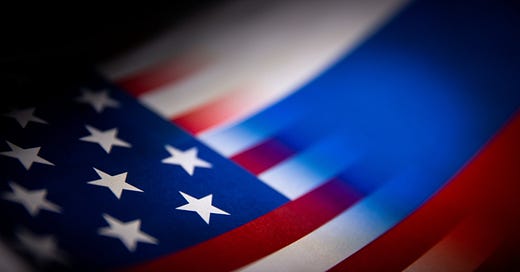America's incomplete victory
The US meets the consequences of its mistakes in dealing with Russia in the 1990s
During the coup in Niger, demonstrators passionately waved Russian flags. Burkina Faso and Mali are leaning toward Moscow. Russia is siding with Khalifa Haftar in Libya while negotiating with Sudanese officials about the deployment of up to 300 troops in the Red Sea base.
Recently, the Kremlin hosted the second Russia-Africa summit with 49 African countries following Prigozhin’s speech in preparation for further deployments to Africa. Overall, there are signs of a tendency that Russian global reach begins to encounter the interests of the West as the Soviet Union did in the Cold War.
Although Russian foreign relations seem limited toward marginal actors, Moscow has built successful cooperation with several states that influence the security of critical minerals supply and international trade. Consequently, the Kremlin boasts partners from North Korea to Mali – in other words from East Asia to Western Africa – and beyond in Venezuela and Nicaragua.
In the broader sense, the subtle tendency results from the incomplete victory of the United States in the Cold War, and Russia managed to revive its ways of competition that were described in “Long Telegram” by George Kennan. In such a manner, there is a question of why the historical triumph of the US turned out to be insufficient.
First of all, neither the United States nor its allies after the Cold War presented an elaborate approach toward Russia at the scale of the projects in Germany and Japan at the end of World War II. Russia received about $13 billion in aid from the US in the 1990s while Germany was supported with $29.3 billion in assistance between 1946 and 1952 years. In the same period, Japan was provided with loans and grants valued at $15.2 billion by the United States. The gap between the numbers is magnified by comparing the territories of the countries.
US aid to Germany and Japan in the early post-war period not only recovered the economies of both states and pull them to the gravity of the Western block but also wrecked the socio-economic roots of Nazism and Militarism. The Japanese and German nations, who underwent the growth of their life standards with peaceful manners, preferred not to arouse imperialist ideologies again.
On the contrary, the sum allocated to Russia remained unsubstantial and Russians witnessed a downturn in their life for decades. Per capita income decreased from $3,777 in 1988 to $1,330.8 in 2000. As a result, nostalgia for the Soviet era survived. Moreover, Russian people along with other several post-Soviet nations concluded and presumed the US as a destroyer of their “good old days”. Ultimately, the nation that was left with poverty, inflation, unemployment, and a deficit of essential consumption products remained susceptible to the contagious revanchist ideology.
Over time, the United States was condemned for all social problems in Russia while post-war Japan and Germany took responsibility for the destructive ideologies and showed their nations the eventual catastrophes. This double standard in American foreign policy led to an incomplete end of the Cold War.
Following Vladimir Putin’s famous Munich speech in 2007, Russia intervened in Georgia, Crimea, and Ukraine and a group of states responded to the armed interference of the Kremlin with sanctions. However, the expectations turned into vice versa. Instead of moral deterioration and social uprisings due to the economic downturn, the actions of the West and its allies were interpreted as the next stage to further dissolve Russia. People who experienced negative economic impacts after the collapse of the USSR believed in the anti-Western propaganda naively.
As Robert Kaplan broadly discussed in a Foreign Affairs article, Washington again has no plan to cope with potential civil wars, ethnic clearances, interstate conflicts, migration, and economic crises when Russia disintegrates. It is the reason why the White House has been delaying more serious provisions and weighty pressure.
If Russia discontinues its existence, this indecisive approach of the US, early or later, generates rouge states in Eastern Europe and Northern Asia in a type of North Korea and Iran, but not stable democracies. In this way, Washington temporarily postpones the Russian question for ten or more years in the same manner as that in the 1990s.
By then, the United States had to deal with the rising Russian reach in Africa and Latin America. It is the result of the passive socio-economic policy of Washington in post-Cold War Russia and incomplete victory in people’s minds and hearts. To deal with the situation more effectively and avoid similar historical mishandling, the West must remove the rose-tinted glasses and face reality before it becomes another mistake.




